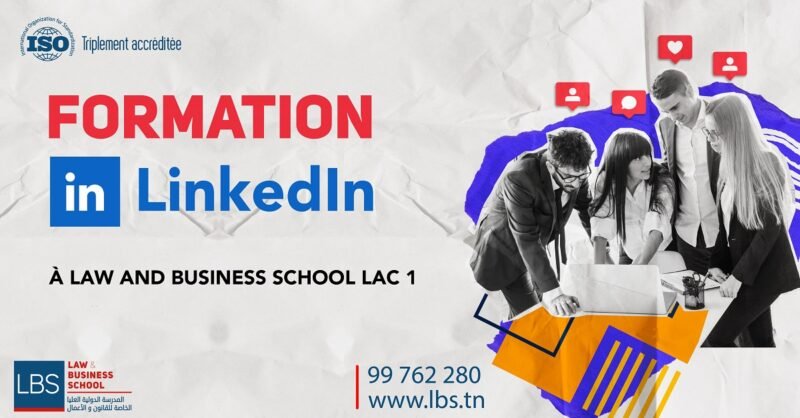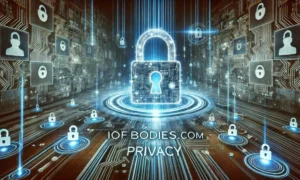If the Heart and Mind Are Not Used Properly: The Hidden Struggles of an Unbalanced Life
Life constantly asks us to make decisions big and small. Some choices shape our careers, others our relationships, and many influence our personal growth. At the center of every decision sit two powerful forces: the heart and the mind. Our feelings, empathy, and intuition are symbolized by the heart. The mind stands for logic, reasoning, and critical thought. When they work together, they create balance. But if the heart and mind are not used properly, the consequences ripple through every area of life.
In this article, we’ll explore what happens when the heart and mind are misused, why balance is so crucial, and how you can align them to live a healthier, more meaningful life.
Understanding the Heart and the Mind
Before diving into the dangers of misuse, it helps to clearly define what we mean by “heart” and “mind.”
- The Heart – Not just a physical organ, but a symbol of emotions, intuition, compassion, and empathy. When people say, “Follow your heart,” they usually mean listening to your deepest feelings.
- The Mind –The mind is where memory, reasoning, logic, and decision-making are all found. It analyzes, calculates risks, and helps us plan ahead.
Both are vital. Emotions give meaning to life, while logic helps us survive and thrive. However, imbalance whether emotional excess or cold rationality creates problems.
What Happens If the Heart and Mind Are Not Used Properly?
When emotions and logic clash, daily life becomes messy. Let’s look at the potential outcomes.
1. Emotional Fallout
When people rely only on emotions, they may:
- Make impulsive choices they regret later.
- Speak in anger, damaging relationships.
- Spend recklessly when sad or stressed.
Example: Buying an expensive car to feel better after heartbreak. The heart drives the purchase, but the mind gets ignored.
2. Cognitive Overload
If someone depends only on logic, they risk:
- Overthinking to the point of “analysis paralysis.”
- Becoming emotionally detached from others.
- Missing opportunities because everything feels too risky.
Example: A person who refuses to confess their love because they keep analyzing all the “what ifs.”
3. Broken Connections
In relationships personal or professional imbalance often leads to mistrust. A person who is too emotional might seem unstable. A person who is too logical might seem cold or uncaring. Both extremes damage bonds.
Case Study:
A company leader promotes one employee over another purely because of personal favoritism (heart-driven). This causes resentment and loss of respect from the team. On the other hand, a leader who fires someone only based on performance numbers without considering personal challenges (mind-driven) creates a toxic workplace. In both cases, improper use of heart and mind harms the bigger picture.
Strengths and Weaknesses of the Heart
The heart isn’t “bad.” Emotions are essential for human life. But they must be guided wisely.
Strengths of the Heart
- Empathy builds strong bonds with others.
- Passion fuels creativity and innovation.
- Intuition helps spot hidden dangers or opportunities.
- Compassion makes communities stronger.
Weaknesses of the Heart (When Misused)
- Impulsive actions without thinking of consequences.
- Over-attachment to people or outcomes.
- Emotional burnout from caring too much.
- Letting fear or anger cloud judgment.
Example: Lending money to someone who repeatedly exploits kindness. The heart dominates while the mind stays silent.
Strengths and Weaknesses of the Mind
Just like emotions, logic is both a gift and a risk depending on how it’s used.
Strengths of the Mind
- Analyzes situations clearly.
- Plans for the long-term.
- Encourages fairness by removing bias.
- Prevents reckless decisions.
Weaknesses of the Mind (When Misused)
- Overthinking leads to indecision.
- Lack of empathy makes interactions robotic.
- Cold, calculating behavior harms trust.
- Suppressing emotions damages mental health.
Example: A parent who pushes their child into a “practical” career path without considering their passion creates unhappiness in the long run.
Heart vs. Mind: A Comparison
| Aspect | Heart-Dominated Life | Mind-Dominated Life | Balanced Life |
| Decision-making | Impulsive | Over-analytical | Thoughtful + empathetic |
| Relationships | Deep but unstable | Shallow or cold | Strong, healthy, understanding |
| Work | Passion-driven but chaotic | Structured but rigid | Productive + human-centered |
| Mental Health | Burnout, regret | Stress, detachment | Resilience and balance |
Real-Life Examples of Balance (and Imbalance)
Leadership and Business
- Balanced Example: Satya Nadella, CEO of Microsoft, is often praised for combining strategy with empathy, leading Microsoft into a new era of innovation.
- Imbalance Example: Leaders who focus only on profit (mind-driven) often ignore employee well-being, leading to burnout and high turnover.
Relationships
- Balanced Example: A couple that listens to each other logically (mind) while also showing care and affection (heart) builds a strong, lasting relationship.
- Imbalance Example: A partner who makes decisions based only on feelings may be unpredictable, while one who never shows emotions leaves the relationship feeling empty.
History
- Balanced Example: Mahatma Gandhi balanced compassion (heart) with strategy (mind) to lead India’s independence movement.
- Imbalance Example: Dictators who relied only on ideology without compassion often led their nations into destruction.
The Dangers of Not Using Heart and Mind Properly in Today’s World
- Mental Health Issues – Stress, anxiety, and depression often arise when emotions overwhelm reason or when feelings are suppressed too much.
- Poor Leadership – Leaders who ignore either compassion or logic create unstable organizations.
- Broken Families and Friendships – Lack of balance in decision-making leads to arguments, mistrust, and distance.
- Social Division – Entire societies struggle when leaders or groups act only out of anger (heart) or only out of calculation (mind).
How to Train Your Heart and Mind to Work Together
Balancing emotions and logic is not automatic—it’s a skill that can be developed.
Practical Strategies
- Pause Before Deciding – Ask yourself: Is this my heart speaking or my mind?
- Use Journaling – Write down feelings and logical reasons, then compare them.
You can monitor emotions without acting rashly by practicing mindfulness meditation. - Critical Thinking Exercises – Challenge your assumptions and ask “why” repeatedly.
- Develop Empathy: Make an effort to see things from another person’s point of view.
- Seek Feedback – Friends or mentors can point out when you’re leaning too heavily toward emotion or logic.
Psychological and Scientific Insights
Modern psychology supports the idea that a balance between emotion and logic is key to well-being.
- Daniel Goleman’s Emotional Intelligence Theory highlights that self-awareness, empathy, and emotional control are just as important as IQ.
- Neuroscience studies show that the brain’s emotional center (amygdala) and rational center (prefrontal cortex) must work together for effective decision-making.
- Case Study – Iowa Gambling Task: Research proved that people who lost emotional awareness due to brain damage couldn’t make proper decisions, even though their logic remained intact. This shows that the heart (emotions) is essential in decision-making.
Quotes on Heart and Mind
-
- “The greatest wisdom comes from a loving heart.” Dickens, Charles
- “The mind is everything. What you think you become.” Buddha
- “Your heart and mind must work together, not against each other, for peace to exist.” Anonymous
These quotes remind us that wisdom lies not in choosing between heart and mind, but in allowing them to cooperate.
Final Thoughts – If the Heart and Mind Are Not Used Properly
The truth is simple yet powerful: the heart gives life meaning, while the mind gives it direction. If the heart and mind are not used properly, we risk making poor choices, damaging relationships, and losing personal peace. But when they work together, life becomes more balanced, decisions feel clearer, and relationships grow stronger














Post Comment